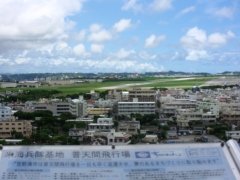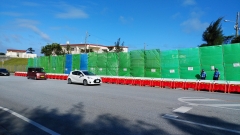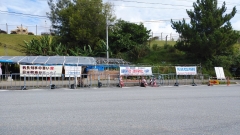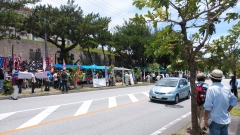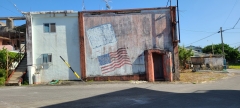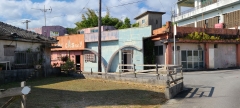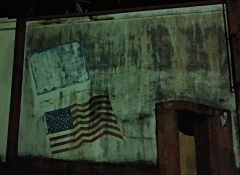02 July 2023
Affirmative Action cannot be a solution
US supreme court ruled the affirmative action which sets racial quota in college admission is unconstitutional.
I, myself think it is not a bad ruling.
When a college chooses who is qualified for its students, why does race matter? Grade Point Average, entrance test scores do matter. Race matters only when an interview is conducted.
As for diversity thing,
As Justice Thomas Clearance said,
"I'd like you to tell me expressly when a parent sends a kid to college, they don't necessarily send them there to have fun or feel good or anything like that," Thomas said. "They send them there to learn physics or chemistry or whatever they're studying."
Yes, school is for nothing but studying subjects to get education.
Discrimination is a problem when the college rejects a student only because of his/her skin color.
Even college admission solely based on scores and ability to study, results in racial or gender bias, this does not mean it was an unfair judgement.
Selecting someone based on his/her trait by birth cannot be a good way to remedy society.
Thomas Clearance nominated by Bush administration era was a good example. He's made several rulings against his own people so he was not liked by his people as I recall my college days, a Black professor in Black Studies course said "Just because he was Black, this works better for Black people. No!"
America is a fundamentally white dominated racist society. So, such fundamental cannot be easily fixed.
23:13 Posted in Politics, Society, USA issues | Permalink | Comments (0) | Tags: afro-american, racism
19 July 2022
The Rise of "White America" Roe vs. Wade Overturned!
Last month US Supreme Court made a historic decision, overturning Roe vs. Wade ruling 1973. The court's ruling leaves abortion rights to be determined at the state level. Several GOP-led states have already moved to enact statewide bans.
Next target may be gay marriage, sodomy law and voting rights for people of colour.
American society is moving counter-clockwise recently.
Kind of "Back to White America" movement in which Conservative White American traditions should be considered norm.
Surely many liberal Americans oppose such movement especially among people of colour.
So they try to move things back to their norms. But conservative White Americans have already determined their own norms and would never listen to other opinions.
Even almost half a century passed since Roe vs. Wade ruling, this conservative Christian fundamentalist value still persists in American society. After all this is the core value of American society.
Rather than creating further division within the society, why not establish a new nation within the continent like Native American tribe territory. Establish "White America"!
Maybe somewhere in between deep South States such as Alabama, Louisiana, and Mississippi. That would be a new state where only conservative White Christian Americans can be residents and live happily everafter without bumping progressive ideas such as feminism, religious freedom, racial equality, LGBTQ rights and etc.
It doesn't matter what is right or wrong. What matters is whether you feel comfortable or not. Life is short. You can't deal with so many fusses.
"White America" may be the realistic and practical solution for America sadly.
18:04 Posted in Health, Politics, Society, USA issues | Permalink | Comments (0) | Tags: women, racism, lgbt, religion
12 July 2022
Novel: "Henoko Bar, Stars and Stripes" Chapter 1 "Children Who Don't Know about Wars"
The novel is based on this issue and my own experience.
In Henoko, Nago City, Okinawa Prefecture, shaken by the issue of the construction of a new U.S. military base, a female singer time slips to the time in the midst of the Vietnam War. What is the Henoko New Base Issue? What was the Vietnam War? What is America? What is Okinawa?
A short story in 9 chapters. Each chapter features famous songs from Japan, the United States and Okinawa.
Translation of this Japanese novel.
August 2018
Naomi Yamaguchi was walking on the streets at night in the Henoko district of Nago City, Okinawa Prefecture in a slightly drunken state. She had just come out drinking at a bar. Coming from Tokyo, she didn't seem to be welcome here. Not because she was from Tokyo, but because she was part of an activity that wasn't welcomed by the residents of the area.
Naomi was a singer from Tokyo. She was twenty-six years old. Although she was born and raised in Yokohama, she had lived and worked as a singer who sang while playing guitar and piano in live houses and cabarets. She liked to sing since she was a child. She’s been learning singing seriously since kindergarten and piano and guitar since elementary school.
She has overwhelmed the surroundings with her outstanding sense of sound and vocal volume. Naomi was said to be talented. In addition, she was a beautiful woman who could even become an actress and model that she recognizes by herself and others. In addition to her work as a singer, she also made money by modeling for magazines and advertisements.
She traveled to Europe for about three years to learn singing. She stayed in England for about a year. While studying traditional music such as opera, canzones, chansons and Scottish folk songs, she was a singer with a wide range of genres and sang songs such as contemporary rock and ballads. She loved learning and singing any song in the world.
Naomi was a singer who sold beautiful voices, but she was an unknown singer who worked at ordinary live houses and cabarets. Then came a big opportunity for her. The manager of an entertainment production company who visited the live house approached her about signing a contract. It promised to debut on a TV show with big sponsors and in music sales. Not only as a singer, but also because of her good looks, he recommended her about being able to work as an actress.
She got on it because it was a very attractive opportunity, but it was a trap. The manager was a middle-aged man who looked like a con, but he was really a con man. He invited her to talk about the contract at a bar in Shinjuku Kabukicho, Tokyo's downtown, and took her to a private room in the back of the bar, where he let her drink more and more alcohol. When Naomi started to get drunk, he suddenly hugged and kissed her.
She screamed loudly, but she was drunk, and caught up in the couch that she couldn’t resist. Just when she thought she was in a helpless situation, an unexpected savior appeared. A tall young man kicked the door of the private room, pulled the manager away from her, and punched him in the face. The manager collapsed to the floor and fainted.
He saved her from the brink of crisis. It was as if she had been saved by a knight on a white horse, and she fell in love with the young man at once.
The young man's name was Genjiro Shimabukuro. He was a young man from Okinawa prefecture. He was a graduate student a little younger than her. He has a fierce countenance. He hoped to become a lawyer while attending a law school in Tokyo.
Naomi wanted to do something to thank him for his help, and Genjiro asked her if she could go to Okinawa with him. Genjiro occasionally returns to his hometown of Okinawa to join the anti-U.S. military base struggle. There, he said, she could use her talent as a singer. Naomi was of course happy to oblige.
Naomi had never been to the Okinawa island before, but she was excited. Speaking of Okinawa, Naomi had a strong image of a resort island. She could go there with a young man like a knight on a white horse.
On a plane from Haneda Airport, Genjiro Shimabukuro and Naomi Yamaguchi arrived in Okinawa, a midsummer coral island.
Genjiro taught her history of Okinawa as a native man. Some of the facts were overlapped with the knowledge she already gained in history classes in schools.
Okinawa had been an independent kingdom until late 19th century like Hawaii in US but the kingdom was annexed to the mainland Japan. In 1945, when Japan surrenderred to the US, Okinawa was occupied by the US military and had been under US control until 1972.
Genjiro was from Ginowan city of Okinawa Prefecture, where Futenma Air Base is. He took Naomi around the U.S. Marine Corps Futenma Air Base, which occupied the land in the middle of Ginowan City, surrounded by wire mesh and explained the anti-base activities he was involved in from the observation deck of the park where the entire Futenma base could be seen.
Futenma Air Base was built after the war by the U.S. military confiscating private lands. Helicopters and aircrafts take off and landing make terrible noise, and the surrounding area is a densely populated urban area. It is also very dangerous when an accident occurred.
In 1996, the U.S. and Japanese governments agreed to return the land, but with terms attached. The idea was to build a base with the same function in another location on the same main island of Okinawa.
For residents living in Ginowan, this would lead to the elimination of the noise and risk of accidents, but for the people of Okinawa Prefecture as a whole, the burden of the base would remain unchanged. It is not fair to think that more than 70% of all U.S. military base and facility area in Japan, are placed in Okinawa which accounted for only about 1% of the total area of Japan.
The majority of Okinawans insisted that if the Futenma Air Base was to be relocated, it should be outside of Okinawa Prefecture. But the Japan government continued to adhere to the policy of relocation within the prefecture.
The relocation site was determined to be Henoko on the east coast of Nago City, located in the northern part of the main island of Okinawa. It was home to Camp Schwab, a U.S. Marine Corps training base. It was a base with a beach facing the coast, and the idea was to reclaim the beach and build two runways.
The Henoko area around Camp Schwab had far fewer people than Futenma Base surrounding area and it was like a village lined with private houses and small shops, and it had the atmosphere of an idyllic country town. Compared to Tokyo, it was much quieter. She went to Henoko with Genjiro. It was about an hour drive from Futenma. It was a different world for Naomi, a city woman.
It sounded reasonable to claim that it was safer than Futenma because it was not a densely packed and the village was facing the coast, but in fact it had other various problems. Even though there were fewer people than Futenma, there were people living there. More than 1,000 people had taken up residence around Camp Schwab.
The Henoko sea, which would be reclaimed in the area, was home to rare coral reefs and the endangered marine mammal dugong. There are many problems from the viewpoint of nature conservation.
More recently, a problem had emerged that it might be impossible to complete even if the land was reclaimed because of the deep soft ground in the reclaimed sea area. In that case, it was impossible for Futenma Air Base to be returned. For these reasons, Okinawa Prefecture revoked the approval of the Okinawa Defense Bureau, the prefectural authority, for a landfill, which was the owner of the construction work. However, the Ministry of Defense has restarted the construction with the court invalidating the prefecture’s revocation.
The installation of seawalls to reclaim the coast of Henoko is progressing steadily. The sea was surrounded by a seawall wharf and sediment was poured into it.
After the relocation plan was announced, people from inside and outside Okinawa Prefecture gathered in Henoko and campaigned against the construction.
From the beach, where the revetment for reclamation could be seen, tents had been set up to monitor the construction. She looked out to sea from the tent.
It was a truly beautiful sea that shined in the light green color typical of Okinawa. The sea was separated by a seawall wharf. The beach is fenced on the border with the base.
When constructing a seawall or injecting sediment, activists took kayaks from the beach to the construction site at sea to protest.
On the road side of the Camp Schwab entrance gate on the land side, a larger tent was set up to accommodate hundreds of people. From there, they could monitor the construction vehicles entering the base, and when the construction vehicles entered, they sat in front of the gate and took action to prevent them.
Naomi looked at the Camp Schwab surrounded by wire mesh. Is this what a U.S. military base were? There were also U.S. military bases on the mainland Japan. Like Yokota Air Base in Tokyo and the naval base in Yokosuka, but these were located in the suburbs and were not conspicuous.
She was amazed at the sight of the line-up of wire mesh fence, as if intimidating to a small island like Okinawa. While driving from Futenma Air Base to Henoko, she saw a wire mesh fences one after another. It was a base island.
Naomi was to perform her singing proudly in the tent in front of the gate. After making speech to nearly a hundred activists gathered in the tent, Genjiro introduced her and she responded to a request to sing a song about the peace movement against the bases of war.
She brought a guitar. She was asked if she could sing a song about peace, and then suddenly came up with Gilleaux's "戦争を知らない子供たち, Senso Wo Shiranai Kodomotachi (Children Who Don't Know War)".
https://youtu.be/6zEAGUwjDNM?si=mZHELu2c9GSoI20S
The lyrics were something like, "We are the generation born after the war, that we grew up not knowing war, so we are children who know only peaceful times and do not know about wars."
Since the song was released in 1971, it seems that the song reflects an era in which the younger generation did not know about the war but adults still had strong memories of the 2nd world war. Nowadays, even adults did not know about war.
But inside the wire mesh fence, youngsters trained for war and wage war all over the world. More recently, it had also sent troops to the battlefields of Iraq and Afghanistan. The base for training such soldiers was Camp Schwab. If Futenma Air Base was relocated, it would become a base for a complete battle and attack position.
Naomi's singing voice impressed the audience. Everyone clapped and cheered, "Lovely, thank you." She was glad she came. It was a different atmosphere from the live house and cabaret customers.
That evening, Naomi and Genjiro went to a private inn in Henoko where activists from outside the island were staying. She stayed there, and Genjiro would drive to his parents' house in Ginowan tonight and drive back tomorrow. Naomi said to Genjiro.
"Hey, I've come to Okinawa for a while, so I want to try scuba diving, and surfing. Wiil you take me somewhere to do these tomorrow and you should know some good places because it's your home island."
Instantly, Genjiro's face changed. It turned angry look.
"Did you come to Okinawa with such a feeling? Activities are serious and desperate! Not a leisure. I'm leaving. I don't know about tomorrow. Suit yourself."
He said and quickly left the inn.
Naomi felt like she was pushed aside. She was stunned. Just when she thought she had been lured by the knight on the white horse, she was shoved away by the knight.
Maybe she was being sloppy. Speaking of Okinawa, she came here with the feeling of a resort vacation. She knew he was passionate about the anti-base movement, but she was not sure because she only just gotten to know him. Naomi was outraged that she had just learned about the Henoko base issue and that it was impossible for her to know everything about this issue immediately.
After having dinner at a private inn, she decided to take a walk around the town of Henoko at night. She was trying to change her mood. Unlike Shinjuku in Tokyo, it was really quiet. It's the middle of summer, but the nights were much cooler than in Tokyo. Is it because of the sea breeze? But it's quiet and dark, and there's nothing but street lamps or private house lights. Isn't there somewhere to drink? Even if there was no cabaret, she searched around for a bar or something.
She entered a bar about a three-minute walk from the inn. There was only one house. There was a small electric sign, so it looked like a bar where locals gathered. She went inside. There was a counter, and it seems that a middle-aged woman was a master.
There were already elderly male and female guests sitting there. She heard chatter. He had an accent in his language and was identified as a local.
Naomi asked, "Can I order a beer?" "Yes, please," the female master replied, pulling out a large mug of draught beer. It was a local Orion draft beer.
After a while, a customer at the counter spoke to Naomi.
"Aren't you the one who sang in the tent in front of the gate at lunchtime?"
said an old man.
"Yes, that's right."
"So you're a protestor of the base, are you from the Naichi?"
said an elderly woman.
"Naichi?" asked Naomi, startled by the unfamiliar words.
"Oh, the mainland" said the man.
"Yes, I'm from Tokyo."
When she answered, the atmosphere in the store suddenly changed.
"Oh god, you're coming from far away to do something, and we're in trouble."
"Are you not opposed to the construction of a new U.S. military base?"
Then the woman sitting beside him replied.
"We've lived with U.S. bases all our lives. We used to have a lot of U.S. soldiers, so there were a lot of bars open around here.
Now, the number of U.S. soldiers who come to train has decreased much to the point where they can meet the needs at the facility inside the Schwab base, but if a new U.S. military base is built, many soldiers and their families will live there, and we will also be able to make money.
We are annoyed that people say they are against the base. I want you to know that!"
Naomi was surprised to hear such things. She had already learnt the fact that there used to be a lot of bars for U.S. troops. While driving from the tent on the beach to the gate on land daytime, she passed through the village of Henoko, and at that time she saw a building with a large Stars and Stripes painted all over the wall of a two-story building with no window.
Picture of the Stars and Stripes in a building was like a bar billboard. It was like a painting that seemed to lure American soldiers, but the painting was faded as if it had not been used for a long time. In the surrounding area, as the man said, there were several buildings that looked like the remains of a bar that was once open. Traces of a flashy exterior were seen, but the houses were already abandoned.
"When was the past you are talking about?" asked Naomi.
"I think it was from before Okinawa reversion to Japan (1972)" to the end of that war."
said an old man.
"That war?"
"It was a big war that the U.S. was having before you were born, and a lot of American soldiers came to Schwab for training and dropped a lot of money."
What kind of war was it in what era? What was the war that America was at before I was born? Naomi thought in her head.
"So, go back mainland and don’t stir this town anymore."
The man said, and the old lady at the counter, the female master all nodded, and the mood turned grim.
Naomi got upset. After downing the beer, she put the money on the counter and quickly left the bar. Is this how they treat customers? Following Genjiro, she was treated badly twice overnight.
The intention to change her mood resulted in even worse.
There seemed no other bar where she could drink, and it was her nature to drink as much as possible at times like this. Then she wandered around the streets of the quiet and dark Henoko village.
She arrived at a building. This was the Stars and Stripes building she noticed in the daytime. In the dim light, she could see a wall of Stars and Stripes paintings, with a bar-like entrance door. However, she thought that it was a place like other buildings around there, that were no longer open and were already abandoned for demolition.
It was ridiculous to expect a fancy bar to drink freely in a country town like this. Naomi thought she had to go back to the inn. At that moment, a sound was heard from the Stars and Stripes building. She could hear the sound of people gathering and faintly the music.
Oh, she thought it might be open for business, so she opened the front door. The door was opened. The inside was crowded. There were a lot of tall young men.
People drinking at the counter, sitting at tables, and standing in empty spaces. Oh, they were all white men, and they all spoke in English. Oh, weren't they American soldiers? The bar was full of energy.
So, why were the American soldiers from Camp Schwab gathered here? Wasn't that different story from what the local people at the bar she went in were talking about earlier ?
Well, okay, Naomi thought she would get a drink there, and headed to the counter. In addition to the counter and table seating, the bar had a stage for live performance. The ceiling was high and there were big electric lights like chandeliers hanging.
It was gorgeous and had a nice atmosphere. Interior was a far cry from a hazy appearance from outside. Music was playing. It came from a jukebox? There was a record inside, and one put a coin in it to play music. Even such antique thing was placed. The song just playing was one of the oldies. Naomi knew this. It was Platters' "The Great Pretenders."
Naomi was surprised that such a great bar was open in Henoko.
To be continued in Chapter 2.
17:45 Posted in Music, My novel, US-Japan relationship, USA issues | Permalink | Comments (0) | Tags: history, war, vietnam, okinawa, racism
04 July 2021
Film: Black "Annie" Diversity Casting?
A famous classic musical film was remade using a protagonist with a Black skin. Traditionally the protagonist was played by a white girl.
Is this part of Hollywood's "Diversity Casting" campaign?
Sounds good. Good musical play. Actors sing very well. I was not bothered by the Black Annie. What I was still bothered was a rich man who adopts Annie was a Black man.
Maybe a white man adopts a Black girl is not politically correct?
But how many of white audience enjoy this film? Wasn't it for Black audience?
In the last scene of the film, a Black man kisses a white woman. Is this widely acceptable in U.S.?
Wasn't this too much of liberal twist?
I am not being racist but I am realist and view the world from realist perspective.
Look who was the President of the United States last year.
I just don't think this casting really fits the current social trend of that country.
22:07 Posted in Film, Music, Politics, Society | Permalink | Comments (0) | Tags: racism, afro-american, musical







